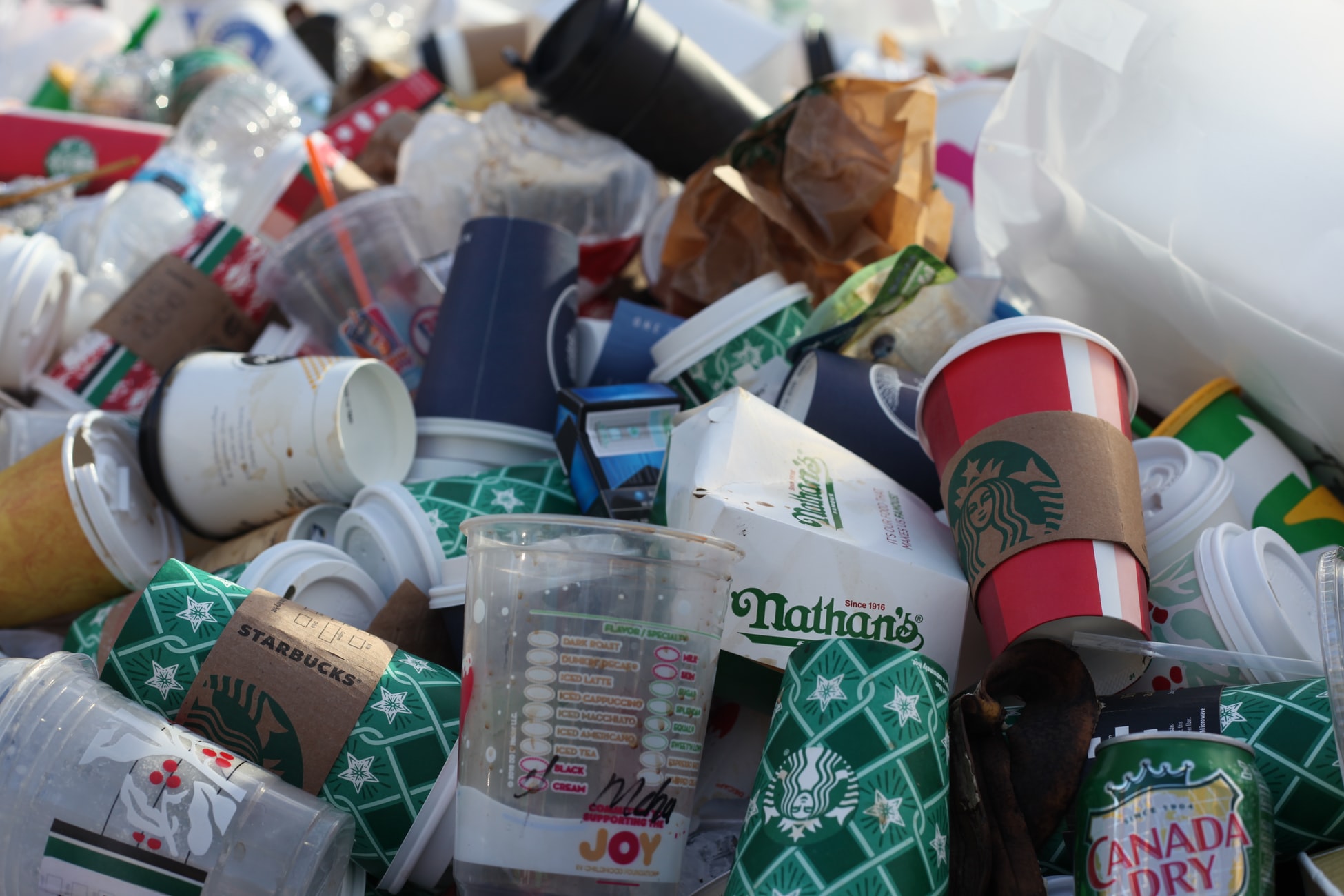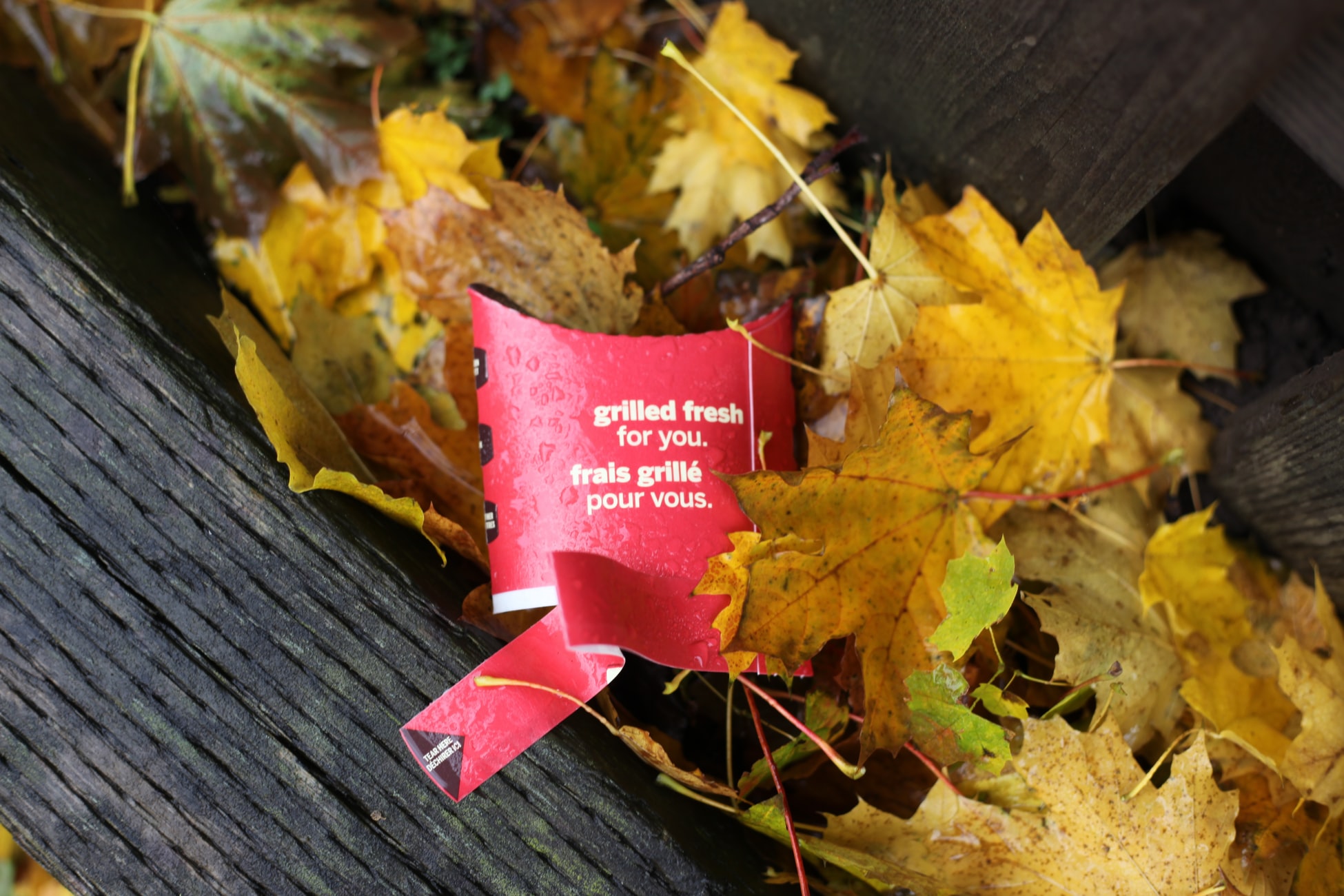
- Better Society -
- 3mins -
- 405 views
UK Farmers call for customers’ number plates to be printed on takeaway bags to help stop litter
British farmers are calling for customers’ number plates to be printed on takeaway bags as they are sick of motorists throwing litter out of car windows into their fields.
Fast food litter poses a danger to livestock and wildlife, and looks unsightly
Britain’s farmers say they have to spend a significant amount of time each day removing litter from their land that has been thrown from car windows. These takeaway wrappers pose a danger to livestock—as they can be ingested and cause medical problems—and also pose a threat to wildlife as well as making the countryside look a mess.

“It would make people think twice before littering if it had their details on it.”
Tom Martin, a farmer in Cambridgeshire, urged companies make consumers "stop the constant tide of littering".
Mr. Martin told The Telegraph: "It seems to be a lot of people, rural and urban. On our farm we are picking up litter like that every day, it isn’t even a main road. It’s very dangerous, cattle in particular will eat anything. We are lucky we haven’t had any incidents on our farm but there frequently are cases of cattle ingesting things they shouldn’t be."
Martin argued that this would be easy to implement. He explained: "The technology to put the car registration number on litter as you queue up to get your drive through takeaway is there. It could be printed in UV as well which would stop people seeing where it is printed and destroying it.
"It would make people think twice before littering if it had their details on it. It’s 2019 and there must be ways to use technology to make sure we are rid of this scourge of littering."
Verity Garrett, a cattle farmer from Kent, agreed, adding: "Living 2.5 miles ( what appears to be the distance needed to eat a meal) away from a drive through, this could save me a huge amount of time picking up other people’s rubbish."
Mike Ashby, an asparagus farmer from Oundle, said: "Totally agree Tom, every Friday or Saturday night, takeaway bags are dumped along the country roads, needs to be stopped and the culprits made accountable".
NFU Vice President Stuart Roberts said: “Fly-tipping and littering in all shapes and sizes continues to spiral out of control, with the latest figures showing there were over 1 million incidents of fly-tipping in the past year. Not only is it illegal and a significant blight on our countryside to dump rubbish, it can be dangerous to wildlife and livestock. We need the future Government to address major rural crime issues, such as fly-tipping, which can have huge impacts on farms and our countryside. It should not be the responsibility of farmers to clean up rubbish recklessly abandoned by others.”
A McDonald’s spokesperson said: “We take our commitment to being a good neighbour seriously. We produce packaging, not litter, and 80 per cent of this is currently recyclable, with clear instructions displayed on the outside as to how to dispose of and recycle it. Litter bins and signage are provided in all of our car parks to encourage our customers to dispose of their litter responsibly, and we carry out daily litter patrols from all of our restaurants to pick up after irresponsible litterers. We also work with governing bodies across the UK to support their litter prevention strategies, including the Government’s Keep It, Bin It campaign.”
Source: Telegraph

Naming and Shaming: the most littered fast food brands in England
1. McDonald’s — 29 %
2. Unbranded fish and chips/kebab — 21 %
3. Greggs -18 %
4. KFC — 8 %
5. Subway — 5 % and other branded coffee 5 % (joint place)
For some reason the findings on the hierarchy of litter differ from city to city. Greggs’ packaging was most popular in Manchester, whilst McDonald’s topped the list in Newcastle. Fish and chip wrappings were the worst in Liverpool. Sheffield was big on KFC while in London coffee cups accounted for the most.
Source: TreeHugger

